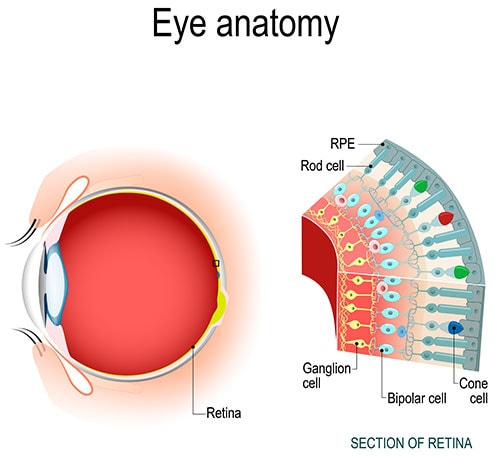All Categories
Featured
Extended exposure to ultraviolet (UV) rays can lead to numerous eye conditions, some of which might result in irreversible damage or vision loss. Whether you're outdoors on a warm coastline or taking a walk on an overcast day, comprehending exactly how UV rays affect your eyes and learning just how to safeguard them is essential for maintaining healthy and balanced vision.
What Are UV Rays and Just How Do They Influence the Eyes? UV rays are a form of unseen radiation sent out by the sun. There are 3 kinds of UV rays:
UVA Rays: These permeate deeply right into the skin and eyes, adding to long-term damage. UVB Rays: These are more extreme and can create surface-level harm, such as sunburn or corneal damage. UVC Rays: These are the most unsafe yet are soaked up by the Planet's ambience and hardly ever present a straight danger. Both UVA and UVB rays can harm numerous components of the eye, consisting of the cornea, lens, and retina.
Short-Term Results of UV Exposure. Also a short period of extreme UV direct exposure can hurt your eyes. A common problem resulting from this is photokeratitis, usually called "sunburn of the eye." Symptoms consist of:
Uncomfortable or red eyes. Level of sensitivity to light. Too much tearing. Short-lived blurred vision. Photokeratitis is typically short-lived however serves as a suggestion of the immediate dangers of UV radiation.
Long-Term Effects of UV Direct Exposure. Collective UV direct exposure in time can cause numerous severe eye problems, including:

Cataracts: UV rays increase the development of cataracts, a condition where the lens of the eye comes to be cloudy, bring about vision problems. Cataracts are a leading root cause of blindness worldwide.
Macular Deterioration: The macula, a part of the retina in charge of central vision, can be damaged by extended UV direct exposure, enhancing the danger of age-related macular degeneration (AMD)
Pterygium: Usually called "web surfer's eye," this problem entails a development of cells on the white component of the eye, which can extend over the cornea and impair vision.
Pinguecula: UV exposure can trigger yellowish areas to base on the conjunctiva, leading to irritation and discomfort.
Skin Cancer Around the Eyes: The delicate skin bordering the eyes is highly prone to UV radiation, raising the risk of basic and squamous cell cancer.
Protecting Your Eyes from UV Damage. The great information is that securing your eyes from UV radiation is easy and efficient. Below are some important suggestions:
Wear UV-Blocking Sunglasses. Choose sunglasses that block 100% of UVA and UVB rays. Search for labels suggesting "UV 400" defense. Wrap-around designs supply additional coverage, preventing UV rays from entering from the sides.
Use a Wide-Brimmed Hat. A hat with a large border can obstruct virtually 50% of UV rays, supplying extra security for your eyes and the fragile skin around them.
Stay Clear Of Height Sunlight Hours. UV rays are strongest in between 10 a.m. and 4 p.m. Lessen your exterior exposure during these hours, or ensure you're adequately safeguarded if you require to be outside.
Protect Your Eyes Year-Round. UV rays exist year-round, also on over cast or snowy days. Snow, sand, and water can mirror UV rays, increasing their impacts. Make sunglasses a component of your day-to-day routine, no matter of the season.
Think About UV-Blocking Contact Lenses. Many get in touch with lenses currently supply UV security, which can be an extra guard when coupled with sunglasses.
Urge Eye Security for Children. Kid's eyes are extra susceptible to UV damage due to the fact that their lenses are more clear, enabling even more UV light to reach the retina. Guarantee they use sunglasses and hats when playing outdoors.
Arrange Routine Eye Tests. Normal brows through to an eye treatment expert are essential for monitoring your eye health. An optometrist can find early signs of UV-related damages and suggest options, such as prescription sunglasses or UV-blocking glasses customized to your demands.
Verdict. UV rays might be invisible, yet their effect on your eye wellness is extremely actual. From short-term discomfort to long-lasting conditions like cataracts and macular degeneration, the dangers of UV direct exposure are also substantial to neglect. By putting on UV-blocking sunglasses, restricting your exposure during top hours, and organizing normal eye tests, you can safeguard your vision and enjoy the outdoors safely. Bear in mind, your eyes are one of your most beneficial properties-- take the required actions to shield them from unsafe UV rays today.
Latest Posts
Learn How to Reduce Expenses on Car Maintenance with Montclare Auto Repair’s Exclusive Deals
Specialist Commercial Roof Solutions in North Platte, Nebraska
Dependable Expenses Door Solutions for Residences and Services
More
Latest Posts
Learn How to Reduce Expenses on Car Maintenance with Montclare Auto Repair’s Exclusive Deals
Specialist Commercial Roof Solutions in North Platte, Nebraska
Dependable Expenses Door Solutions for Residences and Services